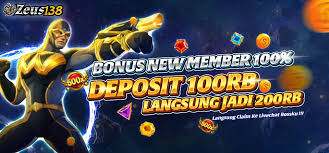The Joker card is one of the most intriguing and enigmatic elements in a standard deck of playing cards. Often depicted as a jester or a whimsical figure, the Joker has evolved from a simple wild card to a symbol of chaos, unpredictability, and endless joker card balance. This article explores the origins, significance, and various uses of the Joker card in different contexts.
Origins of the Joker Card
The Joker card has its roots in the game of Euchre, which originated in the United States during the mid-19th century. The card was introduced to serve as a trump card, providing players with an advantage in the game. Its unique and colorful design set it apart from the other cards, and it quickly gained popularity.
Over time, the Joker card found its way into other card games and adopted various interpretations. Its role as a wild card allowed players to use it in place of any other card, enhancing the strategic possibilities of gameplay.
Symbolism of the Joker
The Joker card is often associated with a dual nature: it represents both the light-hearted and playful aspects of life as well as the darker, more chaotic elements. Here are some key symbolic interpretations of the Joker:
- Chaos and Unpredictability: The Joker embodies the idea of randomness and the unexpected. In a game, its wild nature can alter outcomes and create surprises, reflecting the unpredictability of life itself.
- Freedom and Rebellion: The Joker is often seen as a figure who defies societal norms and conventions. It embodies the spirit of freedom, encouraging players to think outside the box and embrace unconventional strategies.
- Transformation and Duality: The Joker’s ability to take on various roles mirrors the complexity of human nature. It reminds us that we all have the potential for both light and dark, order and chaos.
The Joker in Popular Culture
The Joker card’s symbolism extends beyond the realm of card games into popular culture. It has been used in literature, film, and art to represent chaos and the breaking of societal norms. Perhaps the most iconic representation is that of the Joker character in the Batman franchise. This character, often portrayed as an anarchistic villain, embodies the chaos and unpredictability associated with the Joker card.
Moreover, the Joker has inspired various artistic interpretations, from graffiti to contemporary art, serving as a canvas for exploring themes of madness, freedom, and rebellion.
Uses of the Joker Card in Games
While its primary role is as a wild card, the Joker has specific uses in different games:
- Poker: In some variations of poker, the Joker can act as a wild card, enhancing players’ chances of creating winning hands.
- Rummy: In games like Rummy, Jokers can substitute for any card, adding excitement and strategy to gameplay.
- Board Games: The Joker often appears in various board games, serving different purposes, from adding elements of surprise to changing game dynamics.
Conclusion
The Joker card is more than just a colorful addition to a deck of cards; it represents the complexities of life, the unpredictability of chance, and the duality of human nature. Whether used in games or symbolically in popular culture, the Joker invites players and audiences to embrace the chaos and possibilities that life offers. In a world often governed by rules and order, the Joker stands as a reminder of the beauty found in spontaneity and the unexpected twists that make life truly intriguing.


